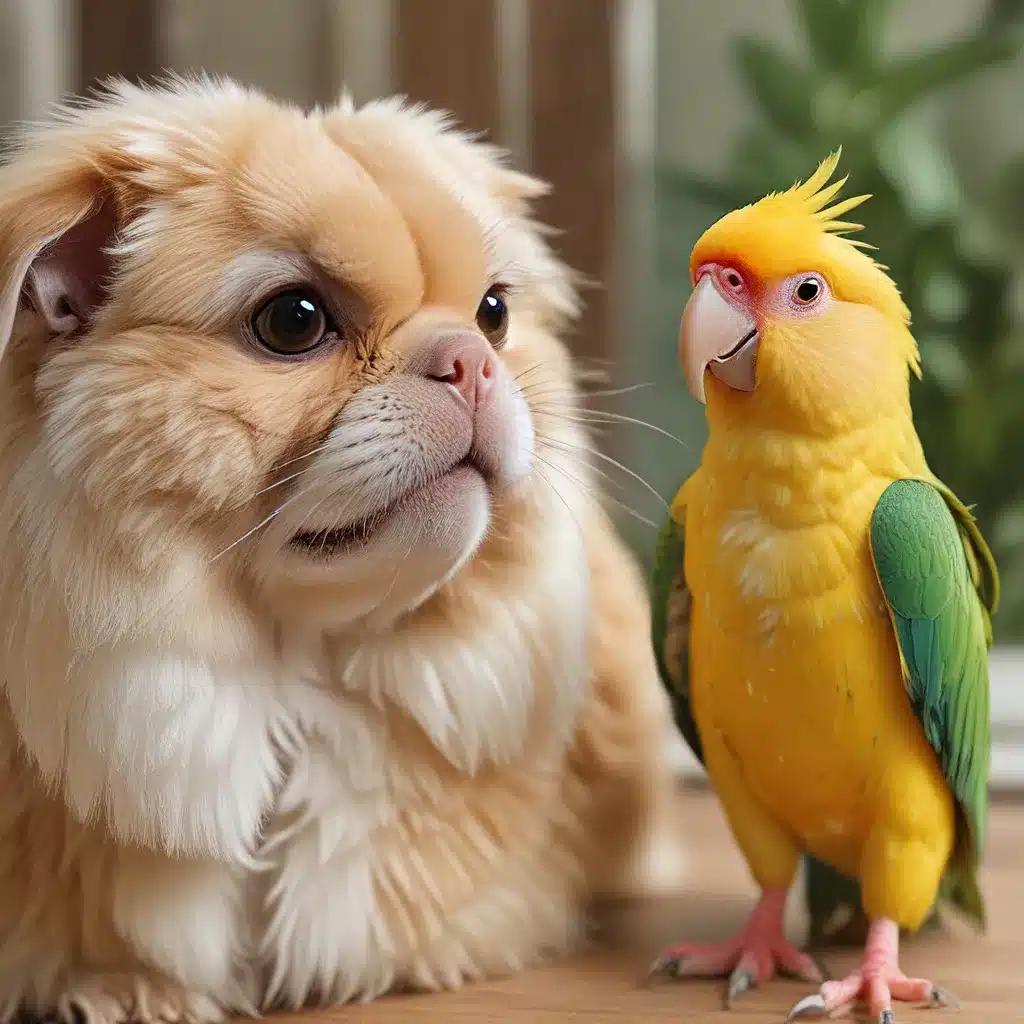
Finding the Golden Years
As a proud pet parent, I can attest that our furry, feathered, or scaly companions bring us immeasurable joy. But what happens when our exotic pets start to show their age? Suddenly, those energetic antics and playful curiosities may give way to the aches and pains of old age.
Caring for a senior exotic pet can feel daunting, but fear not! With the right knowledge and a little extra TLC, we can help our aging animal friends enjoy their golden years to the fullest. Let’s dive in and explore the ins and outs of exotic pet retirement.
Recognizing the Signs of Aging
Just like us humans, our exotic pets experience the natural process of aging. While the specifics may vary by species, there are some universal signs to watch out for:
- Reduced Mobility: Our senior pets may have a harder time getting around, whether it’s from joint pain, muscle weakness, or simply slowing down.
- Decreased Appetite: A loss of interest in food, or difficulty chewing and swallowing, can be a red flag.
- Changes in Behavior: Your once-playful pet might become more withdrawn, irritable, or disoriented.
- Sensory Decline: Deteriorating vision, hearing, or sense of smell can affect your pet’s quality of life.
- Grooming Challenges: Elderly pets may struggle to keep up with their usual grooming routine.
The key is to be an attentive observer, noting any subtle changes in your pet’s daily routine or habits. Don’t hesitate to consult your veterinarian if you have any concerns – they can help identify potential issues and guide you towards the best course of action.
Creating a Comfortable Environment
As our exotic pets enter their golden years, it’s crucial to ensure their living space is tailored to their needs. Here are some tips to create a cozy, supportive environment:
Modify the Habitat
– Easy Access: Provide sturdy ramps or step stools to help your pet navigate their enclosure with ease.
– Soft Bedding: Opt for cushioned, orthopedic bedding that can ease pressure on aging joints.
– Warmer Temperatures: Adjust the climate controls to keep your senior pet comfortable, as they may be more sensitive to temperature fluctuations.
Enrich the Experience
– Engaging Toys: Introduce new, low-effort toys that stimulate their senses without too much physical exertion.
– Varied Diet: Work with your vet to ensure your pet’s nutritional needs are met, potentially incorporating supplements or soft, easily digestible foods.
– Gentle Exercise: Encourage light activity, like short supervised walks or playtime, to maintain muscle tone and flexibility.
Remember, every exotic species has unique requirements, so be sure to consult the experts at your local exotic pets website for tailored advice. With some creativity and attentive care, you can help your senior pet thrive in their golden years.
Navigating Health Challenges
As our exotic pets age, they may face a variety of health issues, from arthritis to organ dysfunction. While the specifics can vary, it’s crucial to stay vigilant and work closely with your veterinarian.
Greenbrier Animal Hospital emphasizes the importance of regular check-ups, saying, “As a pet parent, you’ve got a lot of responsibility. You have to make sure that your little critter has food, shelter, exercise, and plenty of TLC. You also have to choose a doctor that will care about your pet’s health just as much as you do.”
Staying on top of preventative care, such as senior wellness exams and routine screenings, can help identify potential problems early on. Your vet may recommend specialized treatments, like acupuncture or medication, to manage chronic conditions and keep your pet comfortable.
And don’t forget, our senior pets can’t always tell us when they’re feeling unwell. That’s why it’s crucial to be an astute observer, taking note of any changes in appetite, behavior, or mobility. With proactive care and a vigilant eye, we can help our exotic pets navigate the challenges of aging.
Easing the Transition
Ah, the bittersweet reality of pet ownership: the more time we have with our furry (or scaly) friends, the harder it can be to say goodbye. As our exotic pets approach the end of their lives, we’re faced with the difficult task of easing their transition.
The team at the MSPCA-Angell offers some sage advice: “Life is unpredictable, and there are no guarantees whether a pet will pass because of an accident or natural causes. It’s best to think of it this way: you’re helping to save a life, and because of you, that dog or cat is going to have a loving family and ultimately, a happy retirement.”
While the thought of losing a beloved companion can be heartbreaking, remember that you’re giving your pet the greatest gift of all: a lifetime of love, care, and comfort. Lean on your veterinarian for guidance on end-of-life decisions, and don’t hesitate to seek emotional support for yourself during this trying time.
Embracing the Golden Years
As we navigate the joys and challenges of caring for our senior exotic pets, let’s remember the invaluable lessons they teach us. These resilient animals remind us to embrace the present moment, find contentment in the simple things, and cherish the time we have together, no matter how fleeting.
So, whether you’re cuddling up with your elderly iguana or watching your geriatric parrot preen with pride, take a moment to savor the golden years. After all, isn’t that what retirement is all about?

